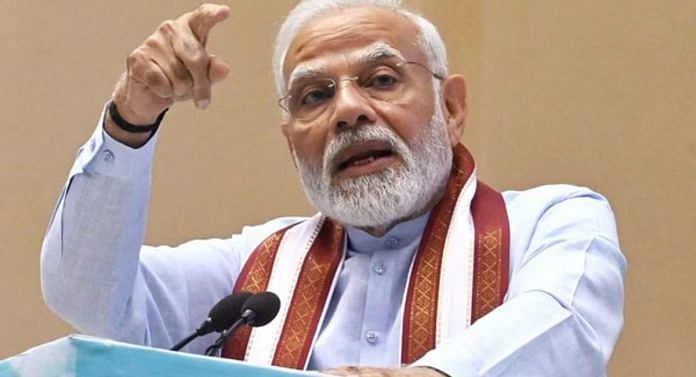M odi’s battlefield, as a lone warrior with a larger waiting period for acceptability in India’s middle class than most of his contemporaries in their struggle for power, has never been confined to the electoral space. Once in power, the other constituency got equally important for him: the Great Indian Mindspace. He is not a proselytiser or an indoctrinator.
He is a storyteller. Stories change nations. He told them as motivational pieces, and the frisson was generated by the seamless blending of aspiration, dreams and patriotism, and the style varied from avuncular intimacy to prophetic grandeur to conversational casualness.

And the India in his telling is not a fairyland—a familiar place in the fantasy of nationalist-autocrats—but a place rooted in hard realism. Its full realisation, he tells you, is the ultimate realisation of nationhood itself. Mann ki Baat , his storytelling session with India in which the listener becomes a part of the story, is the best episodic expression of a country that has ever emerged from a politician.
The great communicator may be a media construct that is too eager to turn every windbag on the stump into a Cicero, but certain politicians have had an easy access to the popular mind; for instance, storytellers such as Churchill, Reagan and Thatcher. They make political communication an art of alternative reality—beyond the wretchedness of the present lies a perfection worthy of us. As one of the most effective communicators in politics.
















